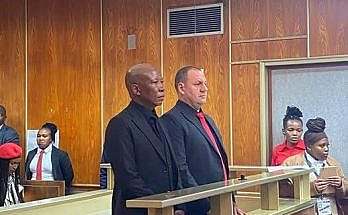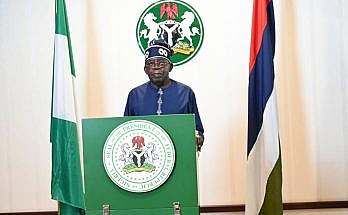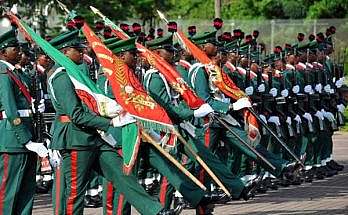Despite the early Monday rain, publicity secretaries of political parties, campaign spokespersons, political analysts, CSO, students, trooped into the Executive Hall, International Conference Centre Abuja, to participate in a round table discussion on political communication.
 The round table discussion was chaired by HE Abdusalami Abubakar GCFR.
The round table discussion was chaired by HE Abdusalami Abubakar GCFR.
Resource Persons (Presenters, Panellists & Discussants) are;
H.E.Abdulsalami Abubakar GCFR – Chairman.
Rt. Rev. Matthew Hassan Kukah, Bishop of Sokoto Diocese.
Prof. Attahiru Jega, Fmr. INEC Chairman.
Prof. Adigun Agbaje.
Mr. John Momoh.
Prof. Jibo Ibrahim, Senior Fellow, CDD, Abuja.
Dr. Garba Abari, Director General, National Orientation Agency, NOA
Malam Mahmoud Jega, Distinguished Columnist, Editor-in-Chief, 21st Media.
Dr. Theophilus Abbah.
Modibbo Kawu – Fmr. Director General, National Broadcasting Commission Consultant.
According to the organizers, the objective of the round table, is to bring stakeholders together and enhance their ability to communicate more responsibly.
Specific objectives are to:
Discuss the nature of political communication and the challenges it faces ahead of the 2023 elections and identify and challenges.
Share global best practices in political communication.
 Familiarise participants with contemporary, result-oriented patterns of engagement with media, its audiences, the electorate and other stakeholder: in the political process.
Familiarise participants with contemporary, result-oriented patterns of engagement with media, its audiences, the electorate and other stakeholder: in the political process.
Develop participants’ capacity for effective identification and utilisation tools and methods of engagement with media and the campaign ecosystem.
Formulate action plans for effective political communication based on the strategic direction of their respective campaigns.
 The last decade produced significant political upheavals in more entrenched democracies that have called to question prevailing electoral logic. Some of these developments include Brexit, the election of Donald Trump and the general rise in populism across Europe.
The last decade produced significant political upheavals in more entrenched democracies that have called to question prevailing electoral logic. Some of these developments include Brexit, the election of Donald Trump and the general rise in populism across Europe.
All of these underscored the role of political communication and how it affects citizens. Significantly, these developments have challenged political actors’ credibility and undermined traditional communication methods.
Other effects include the trivialisation of politics, the use of algorithms to understand, anticipate and intervene in the development of communication and the rise of new media in the public arena. In addition, the rise of fake news and misinformation continues to pose a significant threat to democracy.
These developments are not unique to the and Europe but have spread to developing countries like Nigeria. For example, the 2015 and 2019 general elections saw the weaponization of fake news in Nigeria and the use of misinformation by the supporters and even the campaign teams of the leading candidates.
The build-up to the 2023 general elections raises genuine concerns about the pattern of public communication among political actors, their publicity agents, and other related stakeholders, especially those actively engaged in media and communication.
As efforts become intensified in galvanising political engagements towards voter persuasion, mobilisation and education, through political discourse, analysis, and interchange of related ideas, in the media, the quality of ideas finding expression in the media has been, in many ways, far from the desirable standard, that is healthy for the democratic process in the country.
Some factors that have contributed to the growing negative campaign include lack of capacity, inadequate exposure to fundamentals of political communication and global best practices in methods and tools of engagement. At other times, political actors deliberately spread misinformation to denigrate a particular candidate or party.
In view of the preparations for the 2023 general elections, there is a need for a high-level forum targeted at addressing these important issues and cultivate a healthy culture of issue-oriented political communication. Targeted participants include publicity secretaries, campaign spokespersons, media handlers, and others involved in political communication engagements.  This has become more relevant due to the rise in misinformation and the use of negative tactics that continue to heat an already fragile polity. Therefore, political communicators need to retool and reinvent their approaches, to media engagement and connection, with the electorate.
This has become more relevant due to the rise in misinformation and the use of negative tactics that continue to heat an already fragile polity. Therefore, political communicators need to retool and reinvent their approaches, to media engagement and connection, with the electorate.
Given the mandate of the National Institute for Legislative and Democratic Studies (NILDS) to promote democratic culture and practices in Nigeria as contained in its enabling Act of 2011, the Institute is convening a high-level stakeholder forum to discuss the pertinent issues shaping political communication in Nigeria today. This stems from the conviction that better communication and negotiation can create harmony and more desirable outcomes in politics.
The National Institute for Legislative and Democratic Studies (NILDS), Abuja, is one of the world’s premier academic and research institutions.
NILDS supports the sustenance of a dynamic and effective Legislature in Nigeria (at Federal, State and Local Levels) and the ECOWAS sub-region. One of its core mandates is strengthening democratic processes, structures and institutions. The Governing Council of the Institute is chaired by the President of the Senate, H.E. Sen. Ahmad Ibrahim Lawan, Ph.D., CON and the Alternate Chairman is H.E.Rt. Hon. Femi Gbajabiamila, Speaker of the House of Representatives.
 The National Institute for Legislative and Democratic Studies (NILDS) is a capacity-building agency of the National Assembly and it also provides technical services to the legislature and other institutions of democracy in Nigeria. It was established by the Legislative Studies Act 2011 of March 2nd 2011.
The National Institute for Legislative and Democratic Studies (NILDS) is a capacity-building agency of the National Assembly and it also provides technical services to the legislature and other institutions of democracy in Nigeria. It was established by the Legislative Studies Act 2011 of March 2nd 2011.
The Institute evolved from the Policy Analysis and Research Project (PARP), which was established in 2003 with the financial support of the African Capacity Building Foundation (ACBF).
For over seven (7) years PARP’s programmes strengthened the capacities of legislators and legislative staff through the provision of requisite research and analytical support to the National Assembly.




